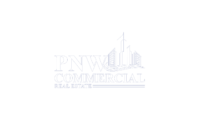When it comes to commercial real estate (CRE) property management, there are several best practices that can help ensure effective and efficient management of the properties. Here are some key practices to consider:
- Tenant Relations: Foster positive relationships with tenants by providing excellent customer service and addressing their needs promptly. Regularly communicate with tenants to understand their concerns and maintain high tenant satisfaction levels.
- Maintenance and Repairs: Implement a proactive approach to property maintenance and repairs. Regularly inspect the property to identify any maintenance issues or potential problems. Develop a maintenance schedule and promptly address repairs to prevent further damage and maintain the value of the property.
- Financial Management: Maintain accurate financial records and create a detailed budget for each property. Track income and expenses, including rent collection, utilities, and maintenance costs. Conduct regular financial analysis to identify areas for improvement and ensure profitability.
- Lease Management: Thoroughly review lease agreements and ensure compliance with all terms and conditions. Keep track of lease expiration dates to initiate lease renewals or find new tenants in a timely manner. Stay informed about market rental rates to set competitive rents and negotiate favorable lease terms.
- Property Marketing: Develop a comprehensive marketing strategy to attract and retain quality tenants. Utilize various channels such as online listings, social media, and local advertising to promote available spaces. Maintain an attractive and well-maintained property to enhance its marketability.
- Risk Management: Identify potential risks and implement strategies to mitigate them. Carry appropriate insurance coverage to protect against liabilities. Stay updated with local regulations and ensure compliance with safety codes and environmental standards.
- Vendor Management: Establish relationships with reliable vendors and contractors for property maintenance and repairs. Conduct due diligence when selecting vendors and negotiate favorable contracts. Regularly evaluate vendor performance to ensure quality service at competitive prices.
- Technology Integration: Leverage technology solutions to streamline property management processes. Utilize property management software for tasks such as rent collection, lease tracking, and maintenance requests. Implement automated systems for efficient communication with tenants and vendors.
- Continuous Education and Networking: Stay updated with industry trends, regulations, and best practices through ongoing education and professional development. Attend industry conferences, join professional associations, and network with other property managers to exchange ideas and gain insights.
- Sustainability and Energy Efficiency: Implement sustainable practices and energy-efficient measures to reduce operating costs and promote environmental responsibility. This includes initiatives such as energy-efficient lighting, water conservation, waste management, and green building certifications.
Remember, these best practices should be tailored to the specific needs of your CRE property management business and the properties you manage. Regularly evaluate and adjust your strategies to optimize performance and meet the evolving needs of your tenants and the market.
